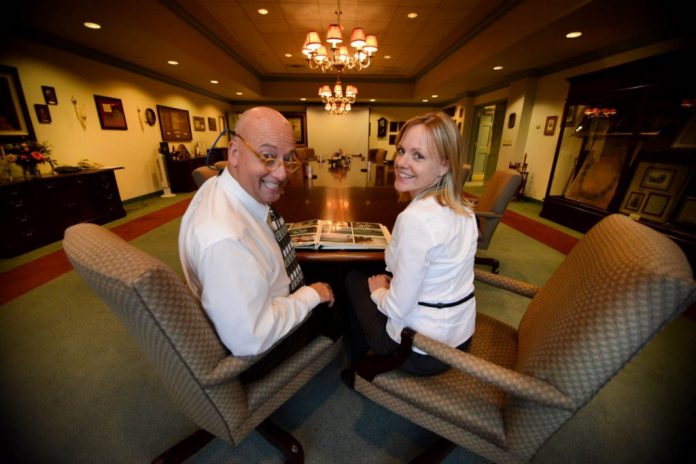By definition, American Heritage Federal Credit Union exists to serve its members and the communities in which they live and work.
But the leadership and staff of the Bustleton-based financial institution have expanded their interpretation of “community” in recent years. American Heritage has become a leading advocate and sponsor of a Kenyan orphanage, donating tens of thousands of dollars in supplies and money to help 89 parentless resident children and dozens more who live with foster families.
Employees at American Heritage recently presented a $6,000 check to World Council of Credit Unions business manager Nicole Bice in support of a construction project at the Busia Compassionate Centre, in the East African country’s border region with neighboring Uganda.
Weeks earlier, American Heritage shipped 520 pairs of flip-flops to the same orphanage. Employees, the credit union’s directors and their counterparts from the Philadelphia Federal Credit Union teamed to collect the footwear.
Meanwhile, American Heritage directly contributes $11,000 as an organization to the orphanage each year to buy meals for the children.
“It costs eleven thousand dollars a year to feed the kids and support staff three meals a day,” said Bruce Foulke, the American Heritage president and CEO who was recently named to the World Council board of directors.
“There isn’t financial gain [to the credit union]. It’s just the right thing to do,” said Bice.
The World Council got involved with the Busia orphanage in 2007. Many of the children it serves have lost their families due to the AIDS/HIV epidemic and as a result of violence during a hotly contested 2007 presidential election.
As the World Council’s project manager, Bice visits the orphanage several times a year and oversees the council’s contributions to the facility’s development.
The council conducts outreach programs in many remote regions, including parts of Central and South America, the Caribbean, Africa and Afghanistan.
“This (Busia) program is different,” Bice said. “It’s not funded by a single donor entity. … There are a lot of organizations, credit unions, who have come in and gotten involved. But none to the extent of American Heritage.”
Foulke said he first became interested in Kenya in 2000, when he was chairman of the Pennsylvania Credit Union Association, which hosted a visit by several Kenyan officials. Foulke reciprocated with a visit to Kenya in 2001.
When the World Council’s initial program commitment to the Busia orphanage concluded in 2010, Foulke urged the council to start a new phase of it.
This year, the council set a goal of raising $120,000 to build a new facility for the orphanage with a masonry foundation, well and drainage system. Construction recently began on that $170,000 project. Almost $100,000 of it is already paid for, Bice said. ••





